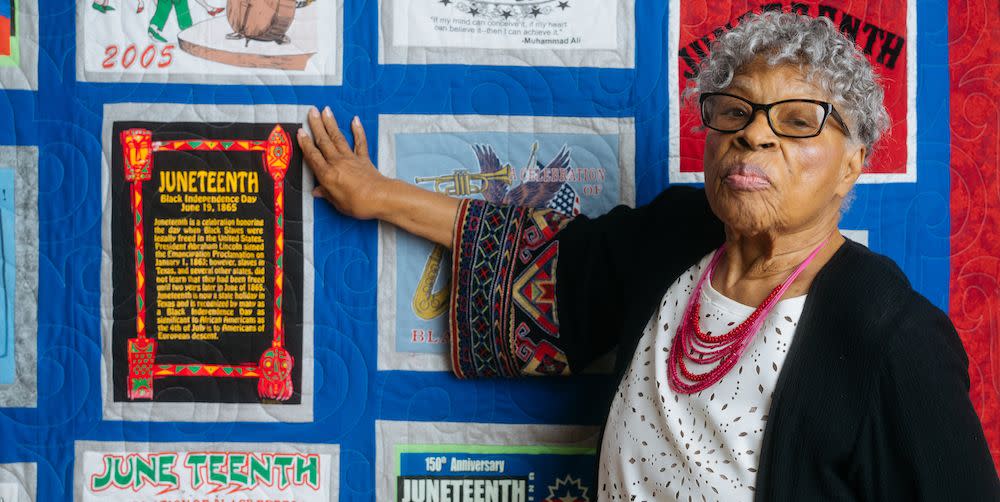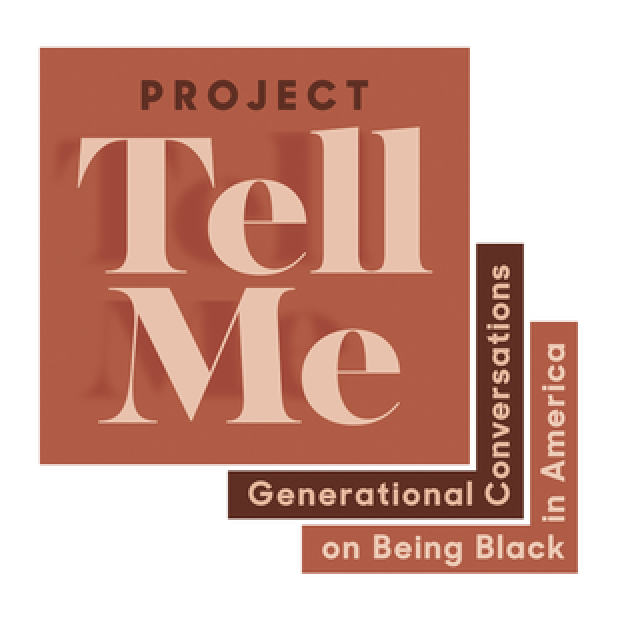We All Need Life Advice From This 94-Year-Old Activist


This story and its sister story, which ran in the May/June issue of Cosmopolitan, are part of Project Tell Me, which records the wisdom and life experiences of Black Americans ages 75 and older by connecting them with a new generation of Black journalists. The complete interview series will run across Hearst Magazines, Newspapers, and television websites starting Juneteenth 2021. Go to Hearst.com/ProjectTellMe for more info.
Opal Lee is a community activist from Fort Worth, Texas, who has been campaigning to make Juneteenth a national holiday since 2016.
Mariah Campbell is a rising senior studying journalism at Texas Southern University.
Mariah Campbell: What were your dreams for the future when you were a child?
Opal Lee: I guess like all kids, I wanted to be a teacher. And I ended up being a teacher, but it didn’t happen [right away]. I finished high school at 16, and my mom was ready to send me to college. I disappointed her. I got married. She wouldn’t even go to the wedding. I was unhappy, and it took me four years and four babies before I decided I wasn’t going to raise a husband too. So I cut my losses, went home to my mother, and said, “I’m ready to go to college now.” She said, “I’m not sending you to nobody’s college.” Then in the next breath, she says: “I’ll keep the children.”
I worked like a Trojan to get the money to go to college in the fall and spent it on a television so she wouldn’t have to run all over the neighborhood looking for those kids. I went to Wiley College in Marshall, Texas, without a dime and I would come home to Fort Worth on the weekends. I finished in three and a half years because I couldn’t stay four.
So I taught third grade for about 10 years, then I became a visiting teacher. It wasn’t teaching; it was social work. If a child was out of school, then it was my responsibility to find out why and alleviate that situation: shoes, clothes, food, a place to stay. I did the social work thing for about 25 years.
Campbell: Did you carry the values you gained as a teacher into your day-to-day life?
Lee: Yes, because when I retired, people who needed food, who needed clothes, who needed a place to stay, would still come to me. If you can help, it’s sacrilege if you don’t. I ended up being the chair of a food bank that burned to the ground. There was this big building behind my house where I wanted to put the perishables that we were still taking to people, so I asked about the building and was told they could rent it to us for $4,000 a month. I nearly had a hemorrhage: $4,000! Well, we paid that $4,000 for 11 months, and the month we didn’t have it, [the owners] came to us and said, “Youre doing a good job. Were going to give you this building.” Now, the food bank has services that help 500 families a day. We also have 13 acres of land called Opal’s Farm, and we share the produce [we grow] with the WIC program.
Campbell: Now, you’re working to get Juneteenth recognized as a national holiday. I didn’t learn about Juneteenth until I began college at Texas Southern. When did you first learn about it?
Lee: I learned about Juneteenth in Marshall, Texas, [where I grew up]. We would go to the fairgrounds for the festival. Everybody would have such a good time; there were sack races, food, dominoes, all kinds of things. When we got to Fort Worth, not so much. People celebrated with their families. There was an incident that happened after we moved from Marshall to Fort Worth. My parents bought a house, and my mom had it fixed up so nice. But on the 19th of June, 500 people gathered that didn’t want us in that neighborhood and they tore that place apart and burned the furniture. My parents had sent us to friends several blocks away and they left after darkness. I don’t know whether that had anything to do with it or not, but Juneteenth has been foremost in my mind for a long time, a long time.
Campbell: What inspired your walk from Fort Worth to Washington, D.C. to raise awareness?
Lee: People just think of Juneteenth as a festival and as a Texas thing. Unity, freedom is what Juneteenth is all about. So I decided that I would walk from Fort Worth to Washington D.C., doing two and a half miles in the morning and two and a half in the afternoon to symbolize that in Texas, the enslaved didn’t know they were free for two-and-a-half years after everybody else. We’ve carried 1,500,000 signatures to Congress to let them know it’s just not one little lady in tennis shoes and her little group called the National Juneteenth Observance Foundation who feel that Juneteenth needs to be a national holiday. Let’s celebrate freedom from the 19th of June to the Fourth of July, because we weren’t all free in 1776.
Campbell: After last year’s protests surrounding the killings of George Floyd, Breonna Taylor, and Ahmaud Arbery, so many people finally recognized and learned about Juneteenth. How does it feel knowing that it took America so long to catch up?
Lee: I am delighted that so many people understand, but it’s a pity that it was because people lost their lives. We’re not going to have things back to normal as they were—it’s going to be a new normal. There are going to be people who will want to join together to fix what’s wrong with our society. It took Quakers and John Brown and Lloyd Garrison and Frederick Douglass and Soujourner Truth and all of those people that worked in concert to get those slaves free. Now we have the pandemic, job disparity, health system needs, climate change—these are the things we ought to be working on together.
Campbell: How can people support your cause?
Lee: Isn’t what you young people say “What’s your ask?” My ask is give me your signature. Go to Juneteenth.us and give us their signature. We need to take another 1.5 million signatures to Congress.
Campbell: What is one thing that you want people to learn from your life?
Lee: That each of us can make a difference. It doesn’t have to be anything spectacular. Keep the neighbor’s kid while she goes to the store or to the doctor or befriend somebody [in need]. I don’t mean you have to take them into your home, but you can find a place for them to stay or see that they get food. You can do an act of kindness every single solitary day because it’s needed.
You Might Also Like

